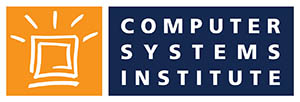The landscape of web development is broad and dynamic, making it a field full of various career opportunities. Web development has something to offer, whether you like artistic design, logical problem-solving, or technical precision.
Focusing on what interests you most can guide your career path and lay the groundwork for long-term success. In this post, we break down eleven types of web development career paths to consider and how each one can align with your skills and ambitions.
1. Front-End Development
Front-end developers create the visual and interactive components of a website or application. Essentially, they build everything a user interacts with directly, ensuring the layout, design, and user experience are seamless.
This path generally requires proficiency in programming languages, including HTML, CSS, and JavaScript, and frameworks such as React or Angular. Key responsibilities in this role include the following:
- Designing responsive, user-friendly web interfaces
- Implementing UI/UX designs
- Ensuring websites perform well across different devices and browsers
Front-end development may suit you well if you have an eye for design and enjoy crafting visually appealing, functional interfaces. This career path also offers continuous learning opportunities since web aesthetics and trends frequently evolve.
2. Back-End Development
While front-end developers focus on the surface, back-end developers handle the invisible frameworks that keep websites running. This role involves server-side programming and database management to ensure sites work as intended when users interact with them. In this position, you may complete tasks such as the following:
- Building and managing databases
- Writing and optimizing server-side code
- Ensuring scalability and security for web applications
Languages commonly associated with back-end development include Python, Java, PHP, Ruby, and Go. This career path could be a great fit if you’re into logic-based work, problem-solving, and data organization.
3. Full-Stack Development
Full-stack development offers a comprehensive approach for those who want to work on both front-end and back-end development. Full-stack developers are versatile professionals who are comfortable managing every phase of the web development process, from designing interfaces to handling servers and databases. This role entails the following duties:
- Bridging the gap between front-end and back-end
- Developing complete web solutions for clients or companies
- Troubleshooting across all layers of the web application
Full-stack developers typically require knowledge of a range of tools and frameworks. While the workload for full-stack developers can be demanding, mastering this area often comes with competitive salaries and flexible job opportunities.
4. Web Design

Web design could be the ideal path for people with more creative inclinations. Unlike development-focused roles, web designers concentrate more on the aesthetics and user experience of websites rather than the technical aspects of coding. For this reason, strong skills in graphic design, typography, and user behavior analysis are key for this role.
Designers often work with developers to ensure their visions can become functional websites. Developers and professionals in this area commonly rely on Adobe XD, Sketch, and Figma to make these sites happen.
As a web designer, you may create visual concepts and layouts for websites, develop style guides and branding elements, and ensure user-centric design decisions. Web design is a natural choice for those who find combining artistic creativity with web technology appealing.
5. Web Development for E-commerce
E-commerce web development includes designing and managing online retail platforms. This specialization involves creating secure and user-friendly shopping experiences while ensuring streamlined order management and payment systems. Specific responsibilities include developing secure payment gateways, implementing features such as personalized product recommendations, and optimizing page speed and performance for online stores.
6. Career Opportunities in CMS Development
Content management systems (CMS), such as WordPress, Drupal, and Joomla, are vital to web development projects. CMS developers either create custom themes and plugins or extend the functionalities of existing systems.
Combining web development skills with experience in CMS can lead to various roles, such as creating websites for bloggers, businesses, and even governmental organizations. This career path is ideal for developers interested in coding and understanding how to structure websites for people with limited technical backgrounds.
Courses as a Steppingstone to Your Career
Taking structured courses can provide you with essential guidance and training, whether you are starting out or wanting to sharpen your current skills. For example, enrolling in web development programs, such as the one offered at Computer Systems Institute (CSI), can help you build a strong foundation in web development.
CSI courses cover topics including coding, data structures, creating software, and techniques for creating robust and user-friendly websites. Students learn the technical aspects of coding and gain the collaborative and problem-solving skills needed in professional environments. With hands-on training, you can start developing your portfolio, boosting your competitive edge in the job market.
7. DevOps Engineer in Web Development

As businesses’ reliance on web applications increases, the demand for DevOps engineers continues to grow across industries. These engineers focus on blending development with operational practices.
They streamline the software delivery process and optimize cloud computing and version control systems, ensuring the applications developed operate efficiently in real-world conditions. A DevOps engineer’s specific duties may include the following:
- Managing continuous delivery and integration pipelines
- Monitoring software performance and promptly addressing issues
- Automating repetitive processes to save time and decrease risks
8. Specializing in Cybersecurity for Web Development
Cybersecurity specialists in web development protect websites from potential vulnerabilities. Their goal is to safeguard digital assets, prevent data breaches, and ensure website uptime.
This specialized field suits individuals who are attentive to detail and passionate about security. With rising cyber threats, it’s imperative that you’re proficient in the following tasks:
- Conducting security audits
- Implementing encryption protocols
- Preventing unauthorized access to sensitive data
9. Mobile Web Development
Mobile-first design is now an industry standard. Mobile web developers work on projects to ensure optimal performance and appearance across devices. They’ll work closely with app developers to create seamless user experiences.
Working in this position means optimizing websites for mobile devices, ensuring compatibility with various operating systems, and enhancing speed and accessibility for mobile users. This specialization is ideal if you’re into creating user-friendly applications on smartphones and tablets.
10. Freelance Web Development
Freelancers often work with small businesses, startups, or individual clients to create custom web solutions. Freelancing could be a great web development career path to consider if you value independence and flexibility.
Nevertheless, freelancing requires strong time management skills and a proactive approach to securing clients. You must build and maintain client relationships, create web solutions tailored to client needs, and manage multiple projects simultaneously.
11. Emerging Technologies in Web Development Careers
Finally, future-focused web developers can explore careers involving AI, machine learning, and virtual reality. These cutting-edge fields combine web technology with technological advancements, allowing developers to create more powerful, immersive experiences.
What will you be doing in this role? Integrating AI into web applications, implementing interactive VR/AR elements, experimenting with immersive design tools, and more.
By pursuing expertise in these areas, you position yourself for some of the most innovative projects in web development. Align your career with what excites and motivates you and create a rewarding and fulfilling professional life. Invest in formal education, such as web development courses, and you can gain technical skills and practical know-how to succeed, setting you apart in a competitive and evolving industry.







